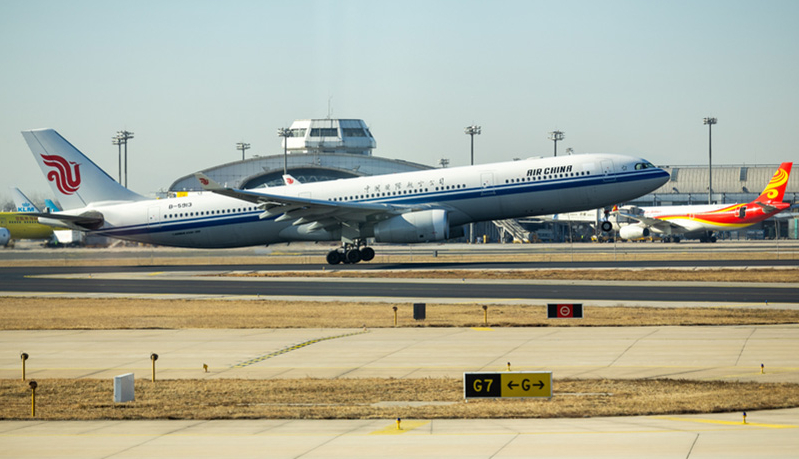
Mention mission sending from China, and invariably the slogan “Back to Jerusalem” will find its way into the conversation. Indeed, it seems difficult to discuss the mission of China’s church today without reference to this movement. Although it does have a significant place in Chinese church history, “Back to Jerusalem” has become almost a shorthand for Chinese Christians’ involvement in global evangelism, perpetuating a narrative that obscures the larger story of God’s work among the nations and the Chinese church’s place in it.
Reflecting on his time at last year’s Fourth Lausanne Congress in Seoul, Korea, one believer from China writes,
Throughout the Lausanne conference, I observed that when the Chinese church’s mission was mentioned, the phrase “Back to Jerusalem” was still frequently invoked. It seems to have become a collective goal, yet many brothers and sisters—both in China and overseas—hold differing perspectives on this vision.
This brother goes on to critique the current usage of the slogan from several perspectives, including its erroneous geographical theology, distorted eschatology, and the suggestion that the Chinese church is uniquely positioned to finish the Great Commission by taking the gospel Westward from China through regions currently dominated by Buddhism, Islam, and Hinduism.
The contemporary “Back to Jerusalem” narrative elevates the role of China’s church in a way that eclipses the larger story of how God is working through the whole church to accomplish his redemptive purpose for the nations.
He questions the expectations of some Christian leaders in China who view Lausanne as a means of gaining international recognition and support for China’s role in global missions. On the other hand, he also calls out global mission leaders for their emphasis on China’s so-called "strategic” nature as a special force in the fulfillment of the Great Commission. Creating unrealistic expectations on both sides, the contemporary “Back to Jerusalem” narrative elevates the role of China’s church in a way that eclipses the larger story of how God is working through the whole church to accomplish his redemptive purpose for the nations.
Going Out
One way to avoid this extreme is to view China’s church within a larger context, namely, a new wave of emigration that has far-reaching implications for Chinese Christians globally. Among the tens of thousands journeying beyond China’s borders are many Christians. Some are going out intentionally as missionaries sent by China’s churches. Others are leaving with their families to seek better educational opportunities for their children, pursue a more promising career, or get out from under the repressive control of the Chinese state.
The exceptional strides taken in recent years in intentionally sending workers understandably garner the attention of the global church, feeding the “Back to Jerusalem” narrative. Yet the more complex dynamics of Christians from China joining the global Chinese diaspora are also part of the story of God’s work in and through China’s church.
Rethinking the Diaspora
Traditional diaspora thinking would view non-believing first-generation immigrants from China as comprising a new mission field in their new country of residence. Chinese Christians who come out with them would be expected to engage with their fellow immigrants and find opportunities to bring them to Christ. The focus at this point is still on Chinese reaching other Chinese.
It is usually not until the third or fourth generation when diaspora Chinese churches begin to pursue sustainable mission efforts among culturally different peoples.
Christians among the next generation, born outside China, are also likely to find ministry opportunities primarily within the Chinese community, although some may venture further afield and engage with people of other ethnic or cultural backgrounds. It is usually not until the third or fourth generation when diaspora Chinese churches begin to pursue sustainable mission efforts among culturally different peoples either at home or in other parts of the world.
This trend of church and mission development has long been observed among Chinese diaspora communities around the globe. If nothing changes, it is conceivable that those riding the current wave of emigration will repeat this pattern. As relates to mission sending from China, some have referred to the larger emigration phenomenon as potentially diluting what they believe to be the real work of cross-cultural outreach.
What if those who are going out could see their own personal transitions within the larger narrative of God’s unfolding story for the nations?
But what if those who are going out could see their own personal transitions within the larger narrative of God’s unfolding story for the nations? Perhaps a new chapter could be written in the story of the Chinese diaspora.
The change of paradigm will require not only spiritual encouragement from pastors in China and in the receiving countries, but also practical help in adjusting to a new life while taking intentional steps to participate in what God is doing in the hearts of their new neighbors.
This might mean, for example, structuring their business or professional pursuits to allow for witness and service opportunities within their spheres of influence, proactively engaging with teachers and other parents in the new schools their children will be attending, or seeking out like-minded churches and organizations that are already active in ministry within the community.
The role of China’s church in world evangelization has more to do with intentionality of heart than with getting to any one particular destination.
The role of China’s church in world evangelization has more to do with intentionality of heart than with getting to any one particular destination, whether Jerusalem or someplace else. It is about following the Spirit’s invitation to join in his work wherever he leads, not just about strategies or methods or structures.
Beginning with the scattering of the church in Acts chapter 8, the story of the church’s expansion throughout history is the story of Spirit-directed people movements that thrust believers into new places and new situations where the seeds of the gospel can be planted. This ongoing story will continue to unfold today in the lives of Chinese diaspora Christians who see God working through their own scattering to fulfill his purposes among the nations.
Originally published by China Source. Republished with permission.
Dr. Brent Fulton is the founder of ChinaSource and served as its first president until 2019. Prior to that, he served as the managing director of the Institute for Chinese Studies at Wheaton College, and before that as founding US director of China Ministries International and the English publications editor for the Chinese Church Research Center in Hong Kong. Dr. Fulton holds MA and PhD degrees in political science from the University of Southern California and a BA in radio-TV-film from Messiah College. Currently, Dr. Fulton facilitates a network of member care professionals serving missionaries sent out from China and also consults with other organizations on the impact of China's religious policy.






